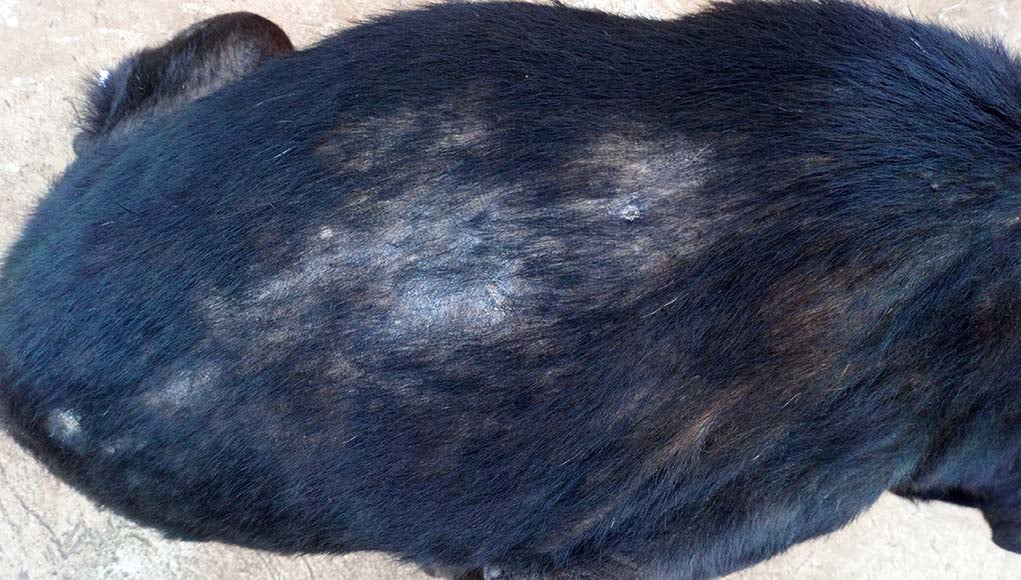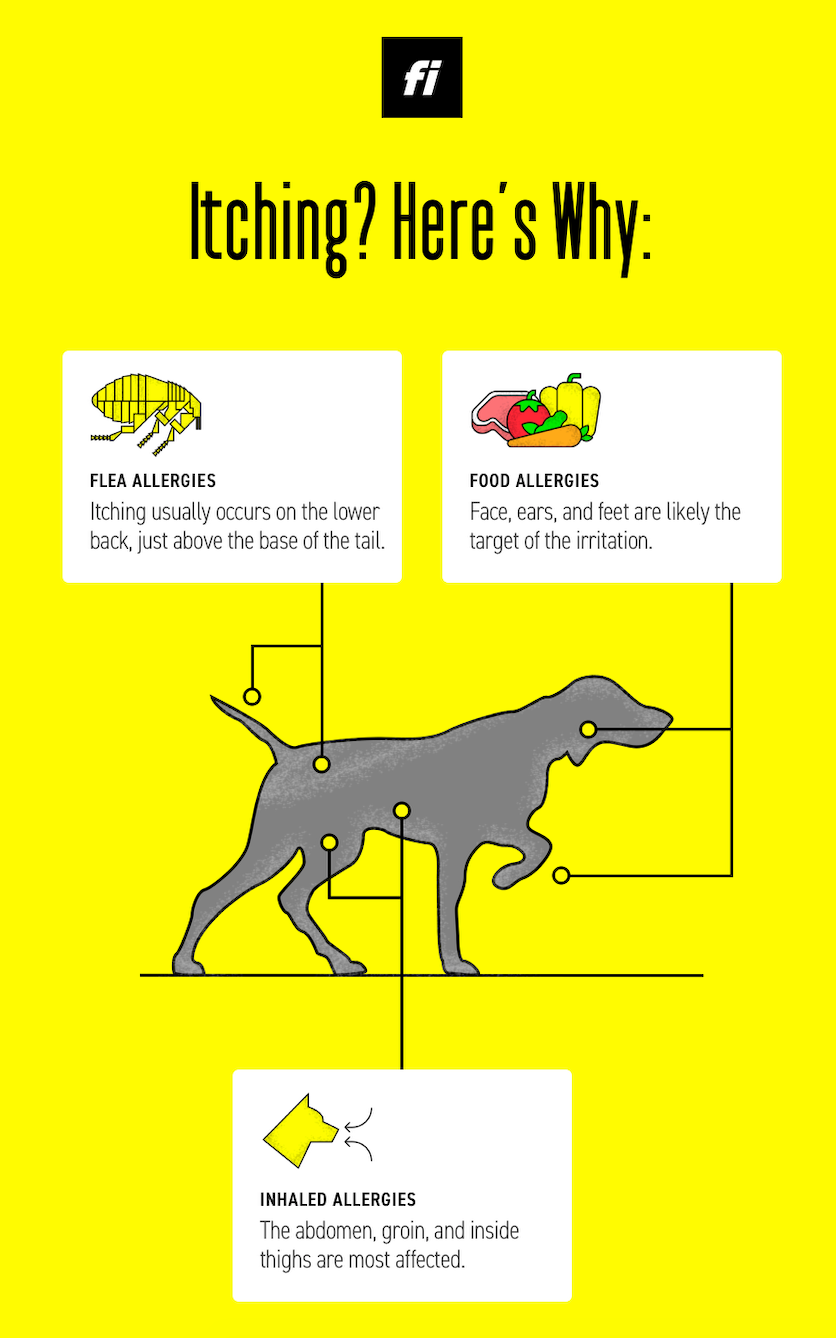Table Of Content

Diagnostic laboratory tests with smears and a skin culture can reveal any bacterial, fungal, or yeast infections, whereas a skin scraping can rule out parasites. Once we have identified that your dog is suffering from itchy skin, we will pinpoint the source of their discomfort. If your dog is scratching, biting, or licking one area of their body excessively, they may be dealing with irritation from an insect bite.

When to Seek Guidance From a Vet
The mites are widely present in healthy dogs; it’s suspected that affected dogs are immunosuppressed, allowing them to proliferate excessively. Treatment, in the form of topical and/or oral medications, can take several months but is very effective. Caused by ‘Demodex’ mites, this form of mange is unusual as it typically doesn’t cause itching.
How do I Care for a Frog?
You will need to seek veterinary treatment for your dog's skin if it is severely infected with mange. It is worth noting that dogs with a healthy immune system do not succumb to mange as easily. So feeding your dog a healthy balanced diet with probiotics and fresh pre-biotic fibres will help prevent mange.

Memberships to keep your pet healthier
Dogs may not always show symptoms, so having them evaluated by a qualified professional can rule out potential causes and outline the best treatment plan. Itchy skin can cause extreme discomfort to your pet, so treating it quickly and effectively is essential. While there are home remedies that may help relieve some or all of their pain, I recommend having your dog evaluated by a licensed veterinarian before beginning any treatment. Dog itching, or pruritus, is a condition that affects many pups throughout their lives. While most cases are easily treatable, itchiness can also be a sign of more serious issues, including an allergy or infection. Checking your itchy dog for fleas and ticks is not just a benefit to them, but it can also benefit you and your family.
Dog Scratching: 5 Reasons Why Your Dog Keeps Scratching - Business Insider
Dog Scratching: 5 Reasons Why Your Dog Keeps Scratching.
Posted: Fri, 02 Apr 2021 07:00:00 GMT [source]
Can stress cause itching in dogs?
Intolerance to animal proteins are one of the primary causes of allergies and itchiness in dogs. An excellent way to ensure this is to remove animal-protein from your dog's diet. Feeding your dog fresh food that is void of animal protein is one of the best ways to prevent allergies caused by animal protein. Your vet may recommend a hydrolysed diet to avoid animal proteins.
Chronic yeast infections in dogs can lead to dark patches of thickened skin, and even non-chronic yeast infections can be very difficult to get rid of. Get the dog to a vet as soon as possible because the itching caused by these infections can be extremely damaging. A lot of factors, such as parasites, infections, and allergies can make dogs itch; it isn't just fleas. Below, we’ll outline the reasons dogs itch, including flea infestations. A dog losing hair needs to visit the veterinarian, but their condition is often able to be cleared up with a simple change in food or medication. Keep up with regular grooming and brushing so that you can spot the earliest signs of a problem.
How do I Care for an Iguana?
However, you should definitely make a vet appointment if other symptoms, such as itching, a bad odor, changes in behavior, or irritated or infected skin. The allergic rash or hive-site in dogs often goes bald, causing the hair to fall out. The vet will usually determine the severity after a physical exam and a diagnostic test using a sample of your pet's hair and/or skin cells.
All-Over Itchy Skin (Without) Rash
While there are multiple reasons why a dog may get alopecia, you can work with your veterinarian to determine the specific cause. Treatment for fleas is easy and stress-free and can be done with a simple flea shampoo and oral or topical preventatives. It is important to remember that many flea shampoos or rinses will only treat the fleas on your dog at that time and will not prevent further fleas from biting. You should, however, consult your vet, especially in the case of extreme hair loss or other symptoms. Infections or infestations of mites, ticks, or fleas are another potential cause.
Why pet owners are switching to online vet care with Dutch
If the underlying cause is allergies and they are treated properly, your dog's hair should regrow and the itching should stop. See a healthcare provider for a diagnosis and treatment if you have symptoms that suggest a neurological condition. A healthcare provider must diagnose and treat an itch and any other symptoms caused by any of these health conditions.
Your vet will likely recommend a range of testing options, including skin scrapings and blood tests, to determine the underlying cause for itching in your dog. Some alopecia flareups are temporary and improve with treatment, while others are permanent. Although bald patches on the skin aren’t pretty to look at, alopecia isn’t life-threatening, and dogs can live everyday life with or without all of their hair. However, you will want to do something to make sure the itching isn’t uncomfortable for your pet.
First, a vet will suggest topical therapy consisting of either a cream, ointment, or medicated shampoo. Again, the treatment of this infection depends on its severity, making it a dog-by-dog case. The infection is normally only a surface infection and only affects a few areas of the dog’s body. Changing to high-quality dog food and a low-stress environment may be able to reduce flare-ups.

No comments:
Post a Comment